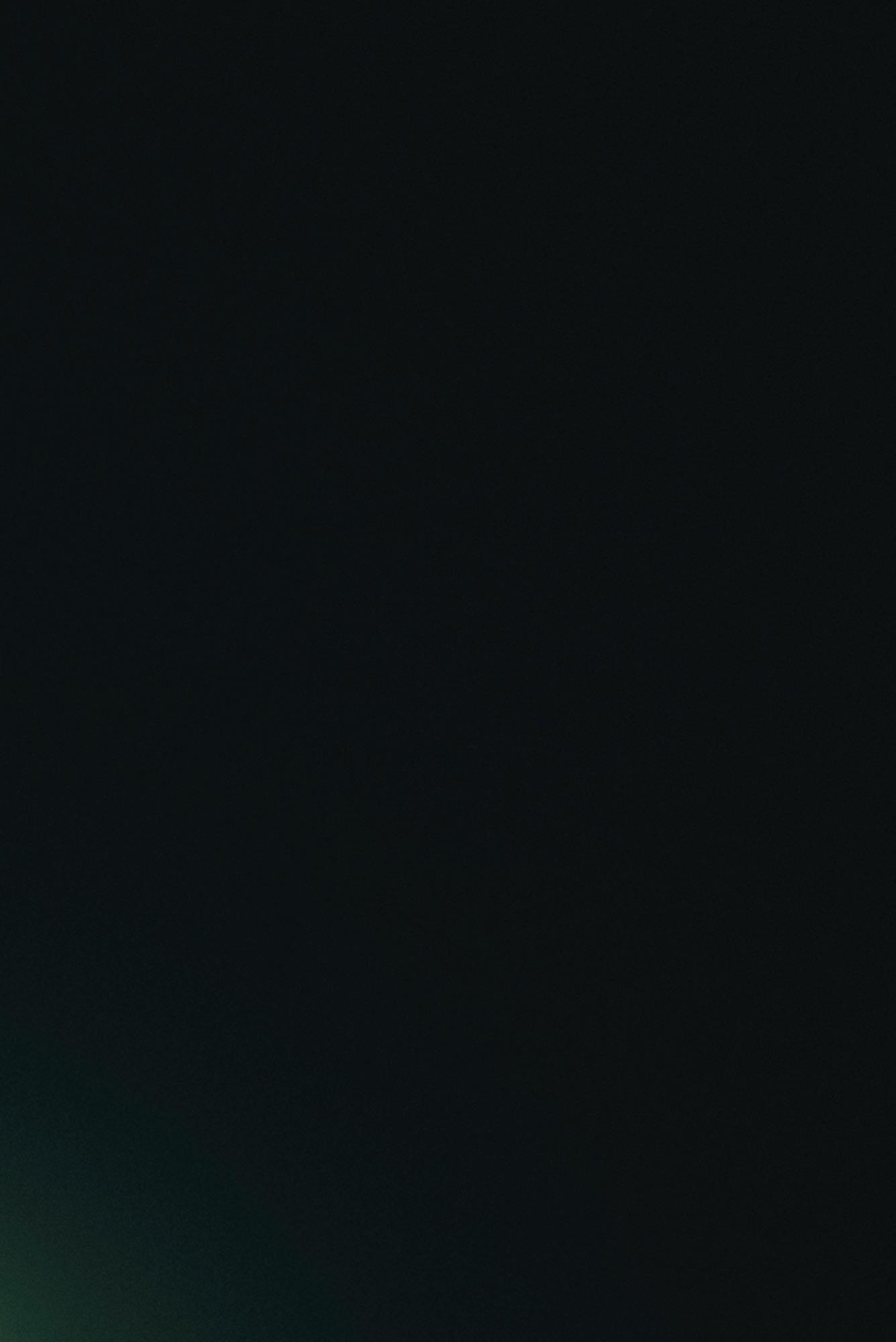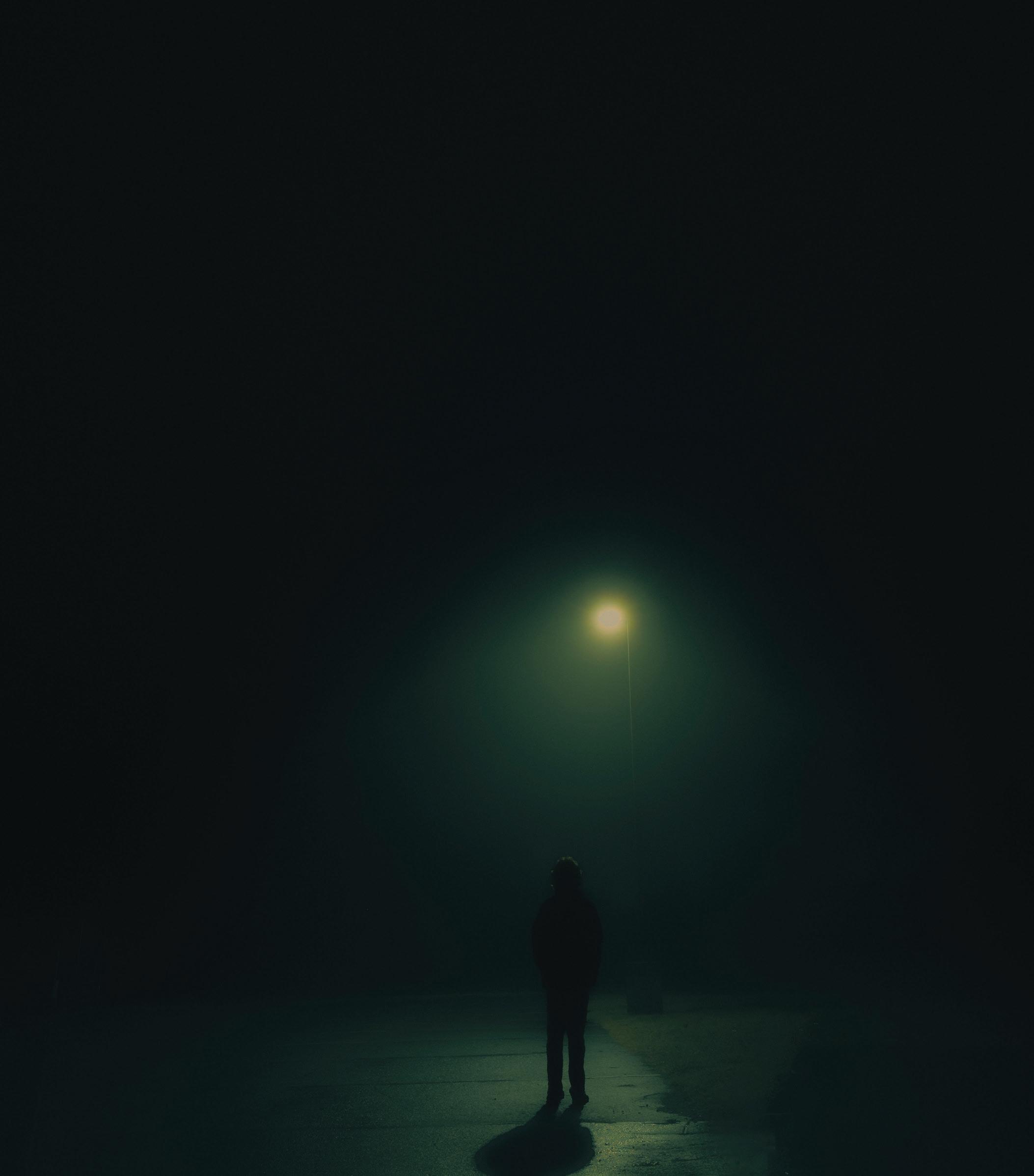
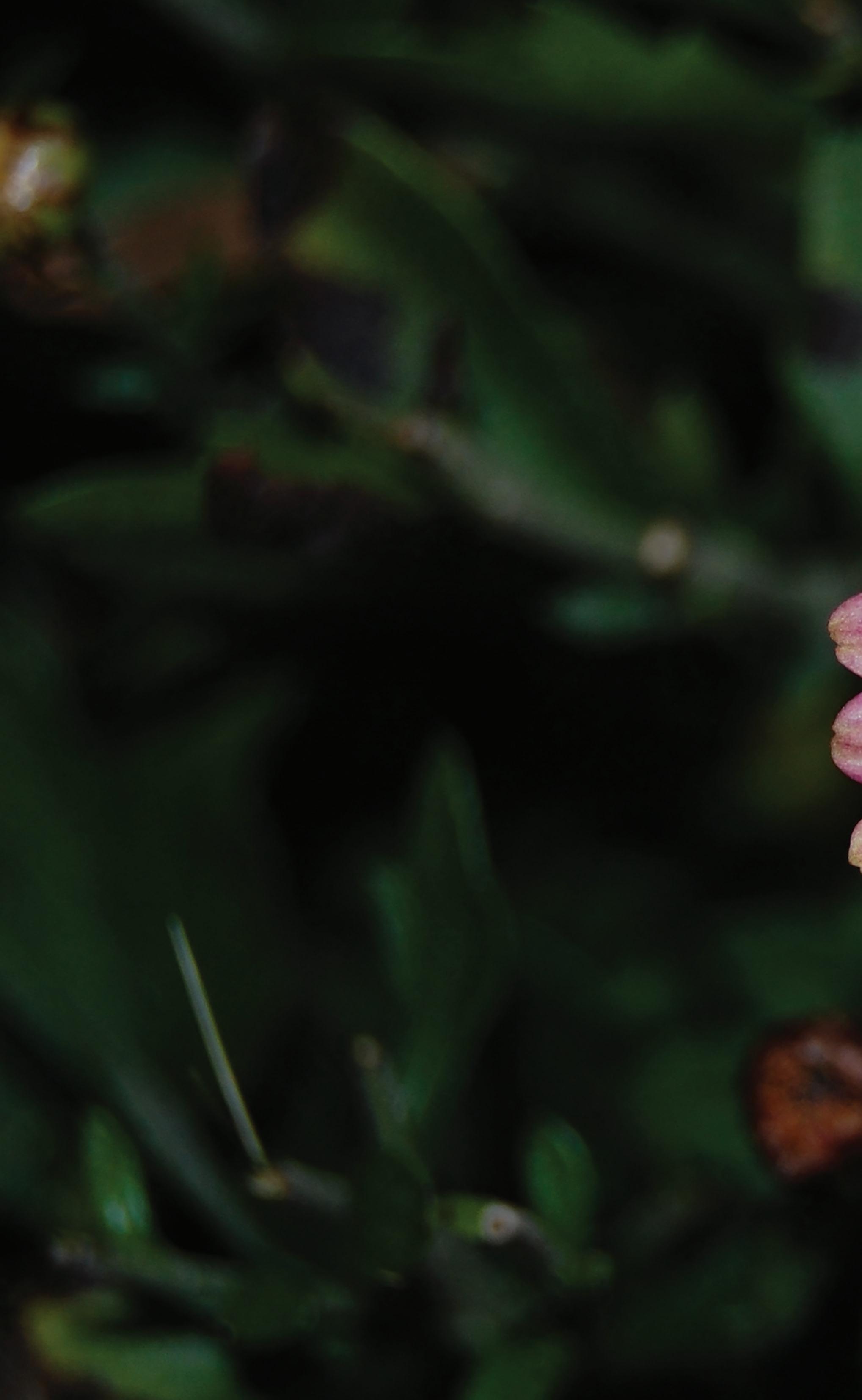

Apocalypto | Ford Garrard | pencil on paper | 8 x 7 in.




Apocalypto | Ford Garrard | pencil on paper | 8 x 7 in.
by Robert Cunningham
In the old kitchen, windows wide open in the July heat, my father hollered that he was headed to see Carter, an old childhood friend, out on Chesconessex Point. I bolted for the car, squirmish in anticipation to fy down the two-lane road and feel the gravel slide as we turned of at the old transom plate that still reads "Onemo's Boat Yard."
My dad slowed the car way down and dodged the pot holes full of low mosquito water. Crab pots strewn in the woods merged into long rows stacked two stories high. Between them, the old SUV wound its way back toward the boat yard, where we parked under two big pines, whose old roots reached like fngers into the creek. Tsenacomoco Creek washed its way in from the Chesapeake Bay, bringing salty air with it. A few weathered boats struggled to foat in the slips on the far side, and a skinny dock stuck out from the $5 honor-box boat ramp. On our side, Carter and a few other guys would sit on the landing under a wooden structure built on the dock. Te shack had a tattered roof, box TV, beaten rug, posters from an age ago, and the central picnic table. Sea lice scurried from board to board as the wake rolled under the landing, in fight above and below.
My evenings here always began at the table stacked high with blue crabs. I was still young enough to grab bits of lump and backfn from the men's sultry piles. My short stubby fngers drenched them in butter and I savored the white bits like manna from heaven.
Afer a while, restless, I retrieved my fshing pole from the
car and took of for the dock past the shack. I grabbed a paddle and eased onto the barge. Te wooden raf was strung together with two bys and a washed up plastic foat, topped with a pair of folding chairs. Once settled, I worked my way out to the center of the creek.
Some evenings I gave David a ride from his boat on the far side to the crab shack. His lab was a national champion dock jumper, but I liked my golden retriever Peaches better. Once David settled next to the icebox on land, I dropped my mushroom anchor and a piece of freezer-burned shrimp to the side of the channel. Last night was a full moon, so the black drum ought to have moved up the creek with the tide. I sat on my fve gallon bucket and waited and watched the baby pompano, which David said were from Florida,
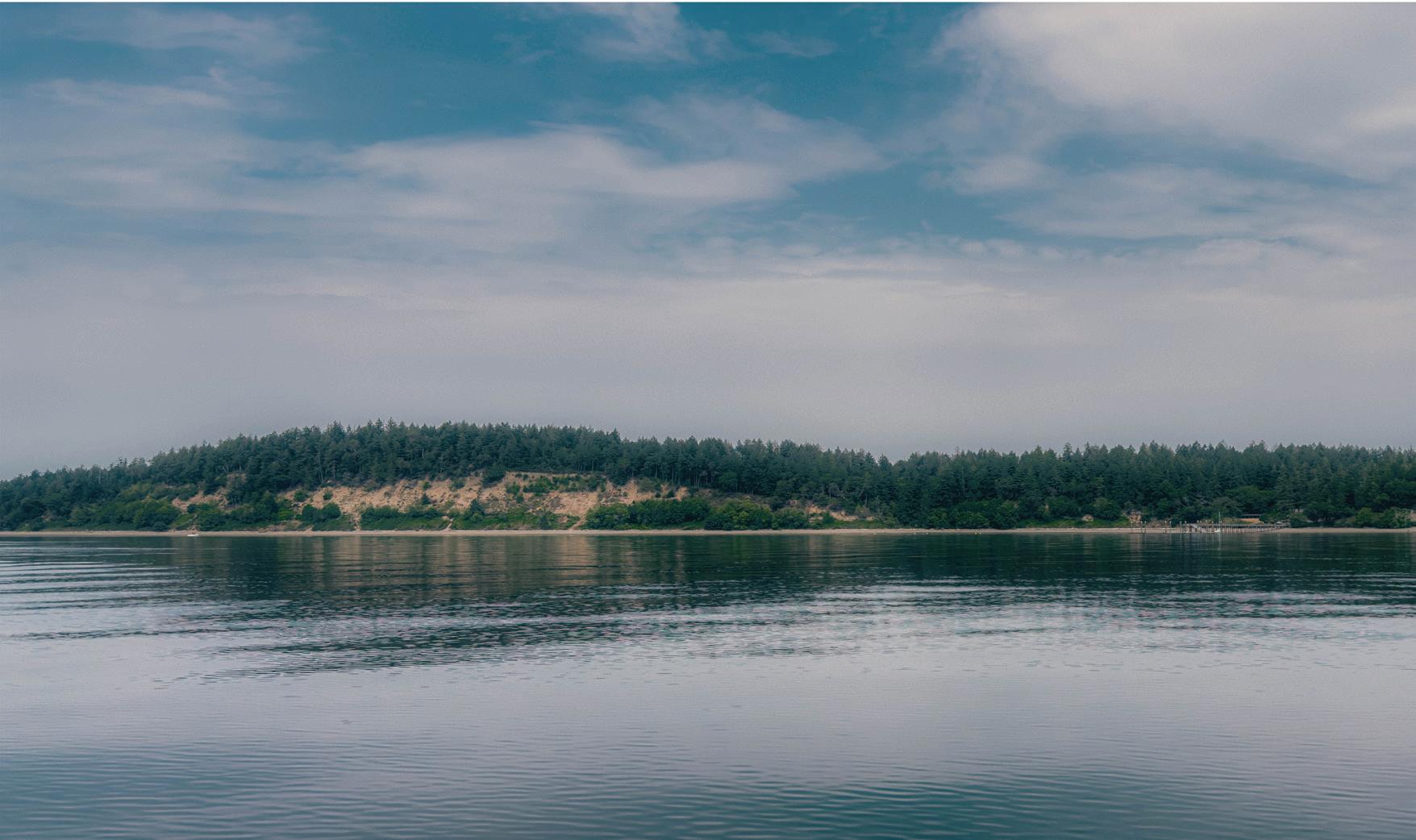
where he was from, and waited for the rod tip to twitch. Two summers before, I'd found the rod in the basement among my grandfather's taxidermied bass. I'd heard a lot about him, the war and such, but never met the man. Quiet, I sat and felt my weight bounce on the bottom.
Te workboats fooded in as if on cue, the half-assed deadrise keel throwing a mountain of a wake. Te water set the horizon spinning and jumping, but I loved the watermen's cheers as I held up my pair of drum. Teir worn voices mixed with the throaty gurgle of the old inboards and carried out into the pines.
My father's laughter reminded me that the picked crab piles grew higher than before, hastening my paddle back to the slip. Once tied up, I moseyed down the dock past the fshing boats to the shack. Before joining my father, the drum had to be cleaned. For this job, the old men raced their knives from gills to tail to wipe their bloody hands and take a long swig from their murky glasses. Men came and went in trucks and boats and shouted across the creek as I cradled those precious flets.
Carter always looked gray and hollowed out, but he was fun to be around. His jokes and joy seemed to contrast his raspy voice and cough. He had been around forever, running bars and piloting ships, always one hole or broken engine short of having a boat, only at home when the cold water crossed Chesconessex in the hurricanes, fooding the downstairs of his smoke stained apartment at the boat yard. As I slid onto the picnic table, a cloud of Old Bay rose up in the salty air and settled onto the radio, shufing through the Grateful Dead and Red Rubber Ball and Sweet Virginia Breeze and Moonlight Feels Right and
Jimmy Bufet on Te Breeze FM.
A few summers later, a rocket was set to launch from Hog Island across the bay. Te NASA rockets streaked through the clouds in the late evenings, if they made it up. Te chance fash on the horizon always tied my stomach in a knot on the sand, refected somber in the dark clouds. Tis evening, my dad grabbed a pair of Dr. Peppers and a bag of Lays, but something was diferent. I had never seen my happy-go-lucky father with such eyes, translucent and distant and wet. He grabbed the keys from the hook and set of for Carter and Chesconessex Point without me, a late summer storm brewing.
Carter died soon afer, and so did my nightly trips to the crab shack, and a part of my father's childhood, and his closest friend, and a part of me.
As the radio played Last Mango in Paradise and the sun set at Onemo's Boatyard and the tree frogs and locusts took to chirping, I rested my head beside the crab shells till we loaded up the car and drove home.

by JB Carroll
Pop had gray hair, wire rim glasses, and wore a polo tucked into khakis. I was eleven when he passed. Most mornings at my grandparents’ house, Gigi made breakfast. One morning, she was at pilates, so it was just me, Pop, and the dog, Scooter, at home. I’m sure he was already through with his second cup of cofee by the time I rolled out of bed and into the kitchen. He was never much of a cook; he kept it pretty basic. Blueberry oatmeal was his specialty—the only thing I remember him making.
Tat morning, Pop asked me if I wanted to make it with him. We got out Quaker oats, a pyrex measuring cup to make the oatmeal in, some blueberries from the fridge, the glass jar of brown sugar, and some fne china to eat out of. Ten Pop went to work. He added the oats, water, and the blueberries with the experienced hands of an old man who doesn’t really know how to make anything else. He let me mix it all up, then he put it in the microwave for three minutes. While it cooked, he got out a bacon treat for Scooter, who was getting jealous.
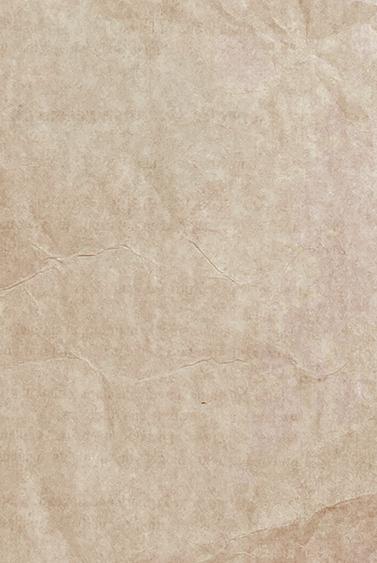

Imitation of Caillebotte | Ford Garrard | oil on canvas | 24 x 12 in.
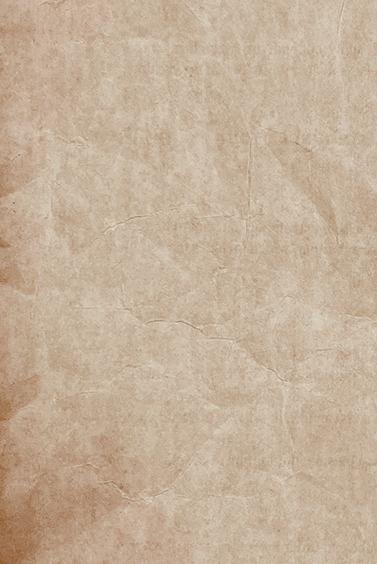
When it was done, he stirred it with a big metal spoon, spreading the purply blue color evenly throughout. He asked me how much I could eat—a lot—and poured some in my bowl. Ten he poured the rest into his. He took the brown sugar and dumped a spoonful into his, a spoonful and a half into mine. I told him it was delicious. He replied, “I know it’s good. Why do you think I never learned to make anything else?”
Gigi was the dinner-party, debutante-ball, Southern-royalty type. She liked the fner things in life. She taught me to play bridge in the vain hope that I might one day be good enough to go to bridge club with her, and visited Paris with my older sister, then me, and later my younger sister. She would cut the tiniest portion for herself out of every dessert, and each year struggled to make the perfect Christmas card with an imperfect family. Despite their diferences, she and Pop had a good relationship; they loved each other to the end. Gi tried to polish him, while he gave her a polished life and even enjoyed it himself. But he did it for her, in keeping with one of his favorite sayings: “Happy wife, happy life.”
Gi and Pop had two kids, my dad and Aunt T, neither of whom inherited Gi’s love for high society. My dad went to law school, but he loved working with kids more than he loved money, so he decided to become a school teacher. T did her own thing, too. She tried out blue hair, worked as a doctor on an Indian reservation in Atmore, and went to church in the poor part of Montgomery.
Gi, T, and Dad have all outlived Pop by seven years now. My memories of him aren’t clear anymore, but they are happy. I can still recall some moments with him, but not as many as I wish I could. I still have us fshing together at Bubba’s pond, making jigsaw puzzles at the beach, and him reading
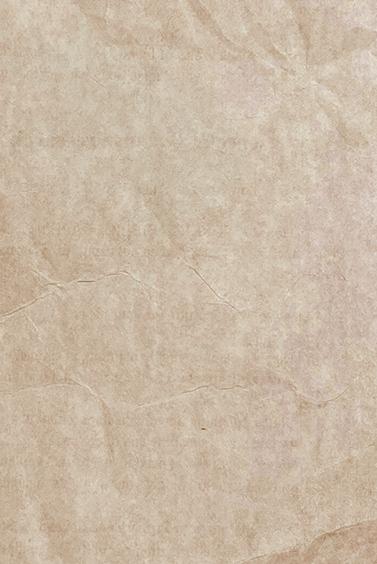
me Tikki-Tikki-Tembo as a young child. I know I could remember more if someone were to describe them to me, but we didn’t talk about him much after his death. I don’t know why.
But I can still see some of the things he left behind. He’s there with my aunt, who loves her dogs like the children she couldn’t have. He’s there with his wife, who still travels without her best friend.
And he’s there with my dad, who likes to make the simple things special. On the rare occasions when my dad fxes dinner, it’s usually red beans and rice. He asks me and my sisters if we “want it gourmet.” Ten he gets some Mexican cheese, nutritional yeast, and Tony’s creole seasoning to spice up something simple.
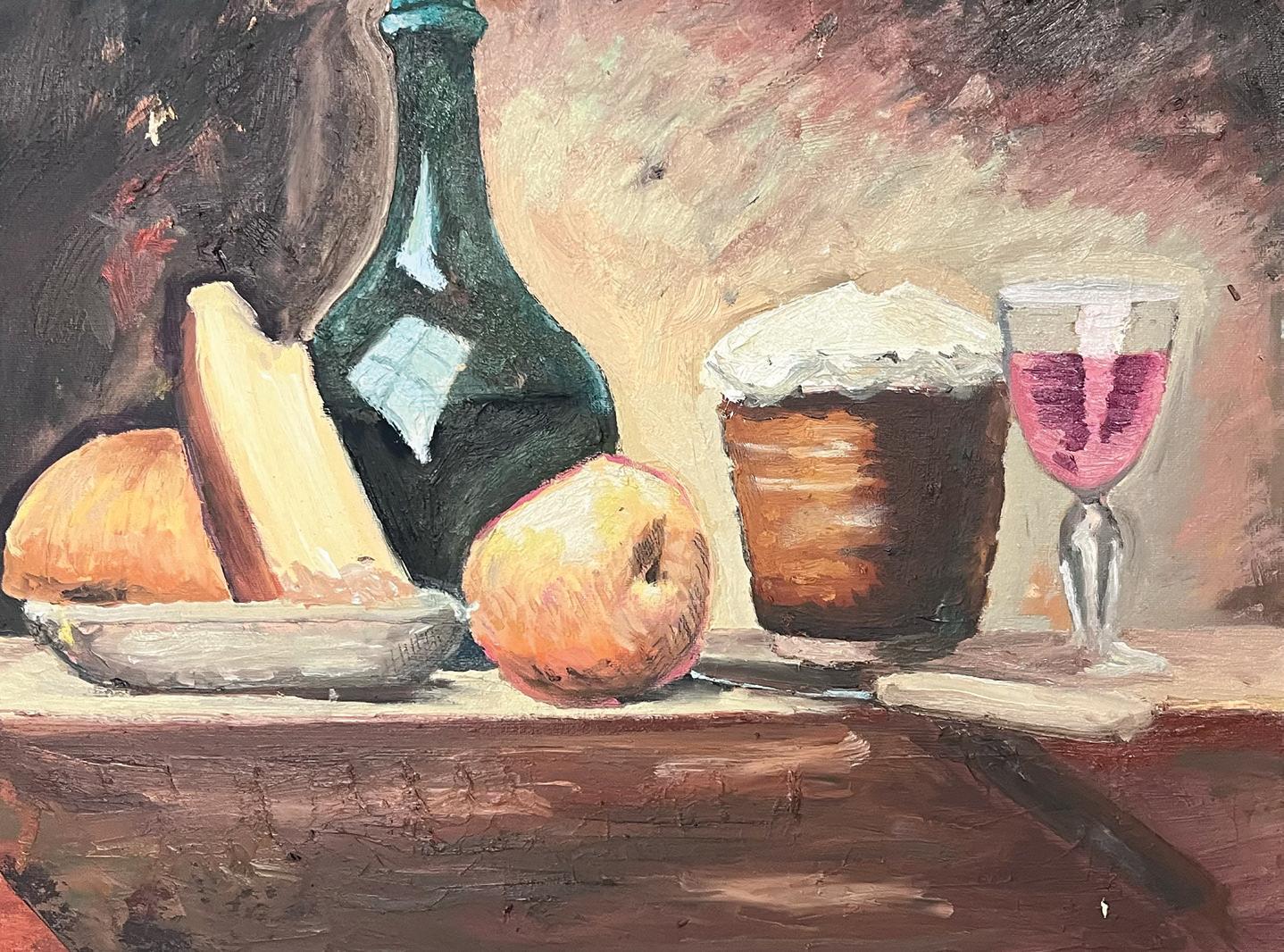
by Ralph Wear
Worry is a pungent rot. It eats away from the inside, growing and seeping out of the brain until you have no room for anything else in your being. My worry sprouted in the last months of my eighth grade year when the world and I forgot every illness besides Covid. Perhaps that’s why the worry grew so fast: I was caught blind. To me, that disease just existed in the sad movies and online ads I always skipped. Because the people who had it were always shown as fghting for their lives or dying, and she couldn’t be dying. Because my life was changing too much, because surely there was no way it could get worse.
But it did.
Mama told me the truth the afernoon before I lef her. We were on a lake in South Carolina with my whole extended family, and my younger siblings were ecstatic because they’d be spending the next two weeks at the beach with family friends. I didn’t want to walk with her at frst. I didn’t think anything good could come of it. But my father insisted, said it would be good practice for my own trip next week, so there wasn’t a thing to be done about it. Te road snaked through the hills, and on each side the tall pines could easily hide one of the thousands of fake monsters the Internet claimed to see around here. It was only afer I told her about one of these, the “Sirenhead,” that she laughed sadly and spoke.

Her voice was always confdent. Wispy and sweet, caring and stern, with the quality one only picked up from a lifetime around smart animals. A horse-calling voice, a farmreared voice, one that sung to me through times of pain and joy, one I had never taken a moment to remember before… because I hadn’t realized I could lose it yet.
So I started then, as she explained everything I already knew. She told me about the timeline I’d watched unfold, the doctor’s biopsy and the results, the blood work and the hushed discussion of tests in the dead of night that she didn’t think I’d heard through our century-old house’s paper-thin walls. Words like surgery and cancer were the only ones that registered; the rest was just beautiful music in my mind.
I hugged her there, atop a small hill among the tall pines, because suddenly, there was a monster far scarier than the Sirenhead right inside her throat.
Her plan was ingenious, in a cruel way: Send your boys to the desert, where they can’t worry. Where they’ll have no way of fnding out what the hell happens to you until they’ve hiked 120 miles in tweleve days.
Te New Mexico high-desert of Philmont Scout Ranch was over 140,000 acres of arid mountains and no cell service, 1620 miles from my home. Te land was so dry that you couldn’t know you were sweating, and every rock and tree had seen more years than any man ever would.
As we walked past log cabin ruins and the bones of long dead trees, I knew that here, the past was alive and wanted to swallow me whole. It was the kind of place my mother would have felt calm, the kind of place that would test any other person to their absolute breaking point. If she wanted a way to keep my father and me focused elsewhere, there could be no better distraction.
Her scheme only cracked because of our ineptitude–that’s to say, because we got lost.
About halfway through the trip, afer a disastrous nighthike into a mountain-top rainstorm, and a bushwacking excursion, we ended up outside Philmont property on what looked like an old access road.
I don’t know why I scanned the ridgeline when we broke for lunch. I don’t know how I saw, among the miles of evergreen trunks, dust clouds and sand-yellow rocks, the head of a telephone wire on the nearest ridge. I don’t know why my frst thought was to pull my phone from my pack and call my mom, who I didn’t even think would answer.
I cried when I heard her. I cried because I hadn’t cried last time. I cried because I was selfsh and, even as she prepared for a life-changing surgery, needed to be told everything was alright. I can’t remember what we said to one another, but all at once, I hated those mountains. I hated the rocks and the water. If I could have, I would’ve stopped right there and never moved again. But the only way out was where my feet pointed.
So I wiped my tears with sandy hands, and walked on.
by Louis de Wet
Crack!
“What was that?”
“I don’t know.”
I paced the stall frantically.
The mare startled. Her warm breath pierced the foggy morning air. I cradled the newborn colt in my arms as his eyelids came unstuck and the world was revealed to him. I set him down gingerly, and he stood, stretching his feeble body.
Crack!
His leg. His back leg was askew.
I’d helped deliver horses most of my life, but this hadn’t ever happened. It wasn’t supposed to happen. Everything was supposed to be perfect. He was supposed to be perfect.; This colt was from the most stunning mare I’d ever seen; I couldn’t bear to lose him.
“He can barely stand,” I cried. “We have to do something!”
“Apply pressure!” Tyler the vet said. I wrapped the bandage profusely around his kneecap, pressing it back into place.
Crack!
His shin bones began to crumble.
Crack!
His upper leg weakened. My heart raced as the bandage ran out.
Crack! Crack! Crack!
His frail mouth locked open, letting out whinnies of agony. His entire body shook as he exerted all the strength he had left in him. I held in place the parts of his leg that weren’t wrapped. Tyler held back the distressed mother, who yearned to protect her sufering child. I felt the infant’s tension growing in my hands like an overinfated balloon. The cracking continued. Just as Tyler leaned in to help, my fst shattered the colt’s entire back leg. The shock sent his body limp.
I felt the whole world fall silent, nonexistent eyes shunning me. I had failed. The mare shrieked as I lay in the sawdust next to his lifeless body.
To this day, the crack of that colt’s leg walks alongside me like a nagging soul, but it doesn’t haunt me. It reminds me. Life, like training a horse, isn’t about making every stride perfect—it’s about adjusting mid-gait, recognizing when to give and and when to take. That crack keeps on echoing, not as a mark of defeat, but as a nudge to fnd grace in life’s faws.
In a world obsessed with perfection, I’ve come to embrace the cracks.
by Danny Van Clief
“Waiting All Night” by Phish plays in my ears, and I dream of saltflmed rocking chairs on softened wood decks...
The gray of oceanic twilight extends to a speckled horizon. Breezes roll in to lay over the water. I push my fngers under my cap and through my hair; it’s stif from seasalt. On my right is my uncle; he wears a tank top, corduroy shorts, fip fops, and a cap. His stubble is days old now. It both complements his mustache and insults it. He stares of into the ocean. He’s playing a guitar—rolling out some songs from his old days in his band. Though I can’t see through the deck’s foorboards, I know what’s below: a surfboard, waxed, bumpy and rubbery, rests from the morning’s excursion. Spiky grasses push through the sand that I have to step over. Forgotten sunscreen, sticky from aerosol discharge, beds down in the damp sand. Fixed to the wall, there’s a little showerhead whose mint-silver had long since oxidized red. That same red trails down the vinyl wall, a nuclear shadow of the shower water’s path.
I love the area below the porch. It’s rougher than the idyllic scene on top. You’ll spot rusty nails threatening tetanus. Or, the sand has worn a bedspring into barbed wire.
When I was a lot younger, it was where I would spend much of my time; not at the beach, not in the living room upstairs, but in the dirt and sand under the porch. I knew what I would fnd at the beach. I knew what I would be doing in the living room. Those places were familiar, and I loved them for what they were; they are still some of my favorite places; but I never knew what would happen under the porch. It was gross, it was cluttered, and most importantly, our grandparents told us not to go down there.
The Maps app on my phone has accordingly automatically identifed Woodberry Forest School as “Home.” But it’s at that beach house on the
Carolina shore that I feel the most real.
There, I can surf, relax, play Scrabble with my mom, and read as much as I want. At the beach, swimming, building cities in the sand, or exploring the grimy space beneath the porch, I feel most free. Again, that’s odd, because that beach is only fve miles wide. I may be confned by size— there’s no mainland, since it’s on an island— but fve miles of beach is more than enough to be happy on.
So, I sit on the porch upstairs and I am happy.
I know that the next evening will be the same. And I don’t mind that at all. It’s a routine— tacit in its creation, uncodifed. But to fail to show is to violate our family’s law.
On my left is my dad. He wears a sun bleached tee and the same corduroy shorts. He sips his Corona and laughs a little. “How great is this?”
“I wish I had the words for it,” I say back.
Five minutes pass. The song ends and the next one starts.
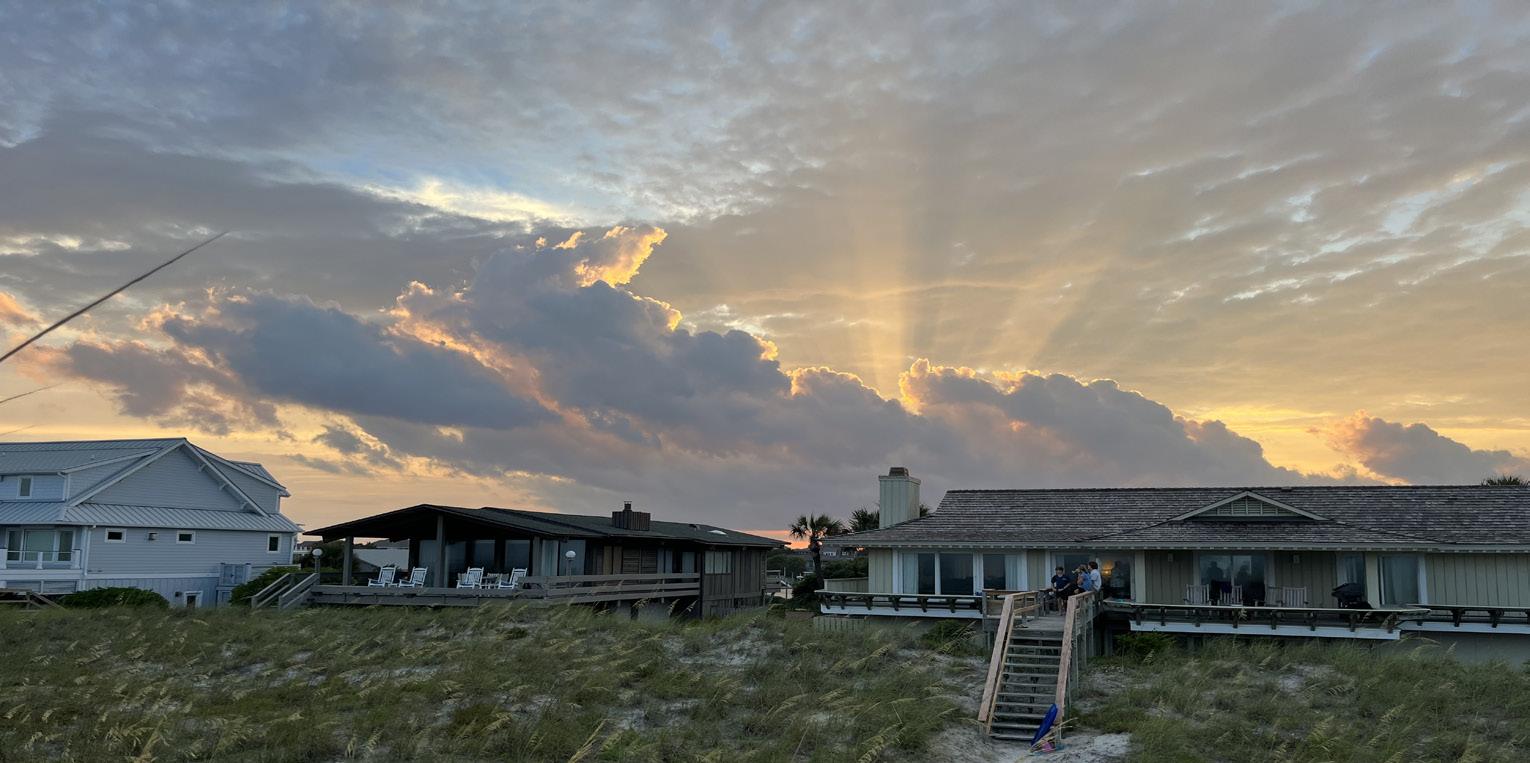
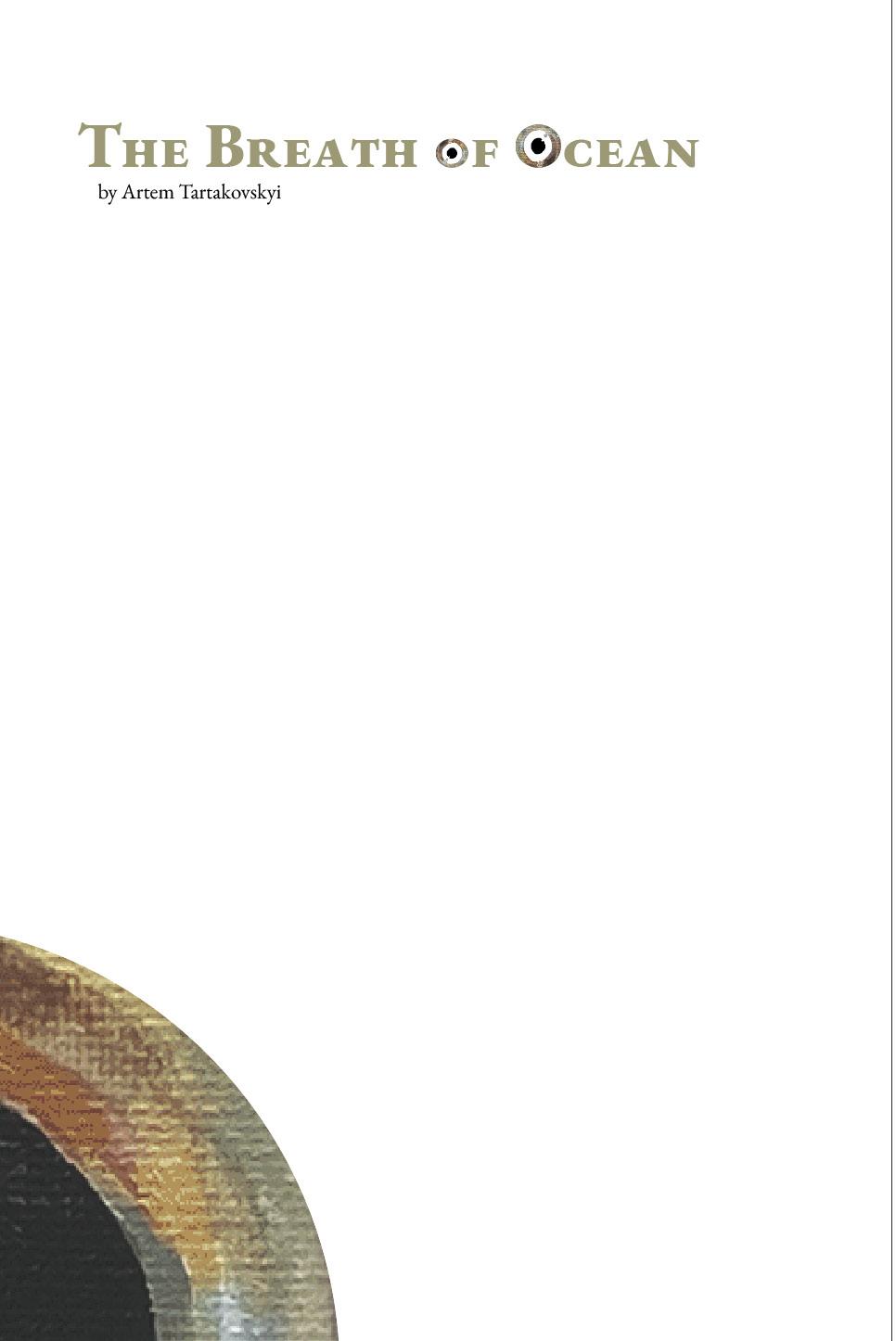
Te Atlantic Ocean frst passes through Gibraltar, reaching the Mediterranean Sea. Ten it bottlenecks through Bosporus and Dardanelles, connecting to the Black Sea, before fnally meeting the bay of Odesa, where Odesa city was established two hundred thirty years ago. Due to its never-freezing bay, the city quickly grew as a trading hub, where cargo ships from all over the world could stop even in the coldest winters. Odessa is the city where two centuries later my parents met as college students, the city where I was born. Growing up in a coastal city, I always viewed water as the beginning.
“Te Road of Health” is the name of the longest cycling path in the city of Odesa. It stretches for ten miles along the coastline, chasing but never meeting the water. I’ve been riding this path since I was eight. In times of sadness or joy, before a long leave or after an awaited return, I would get my bike, go down the shore, and ride “Te Road of Health” for hours, chasing the sea, sharing my feelings. Water seemed like a best friend to me. I would spend hours telling him stories, asking for advice, or arguing with him. Whatever happened, I knew I could come back here and meet the water.
On “Te Road of Health,” there is one spot that bears special meaning for me. It is an old, unsightly beach, often overlooked by tourists but wellknown by locals for its solitude. After I walk through the trees and dirt hills, climb the dilapidated concrete pier, and pass the rotten barbed-wire fence, I enter a temple. I see the never-ending
water, taste its salt particles blessing my cheeks, and hear the Giant slowly taking its breath. It buried my ancestors deep in its bottoms. It brought my parents together, but will soon bury them, too. It hugs my back with calming winds, but will strangle my neck later. It will bless my kids and grandkids, but not for long: life returns to its origin.
We are Oceans, breathing . . . carrying . . . crawling . . . We are the simplest cells, composing and decomposing with H2O molecules. We are fearless sailors, moving our ships across furious storms. We are Artems, riding our bikes alongside the shore, chasing the water, but never actually reaching it. Because who are we, if not spontaneous ofsprings of Oceans, living our miniature lives, only to come back to endless water?
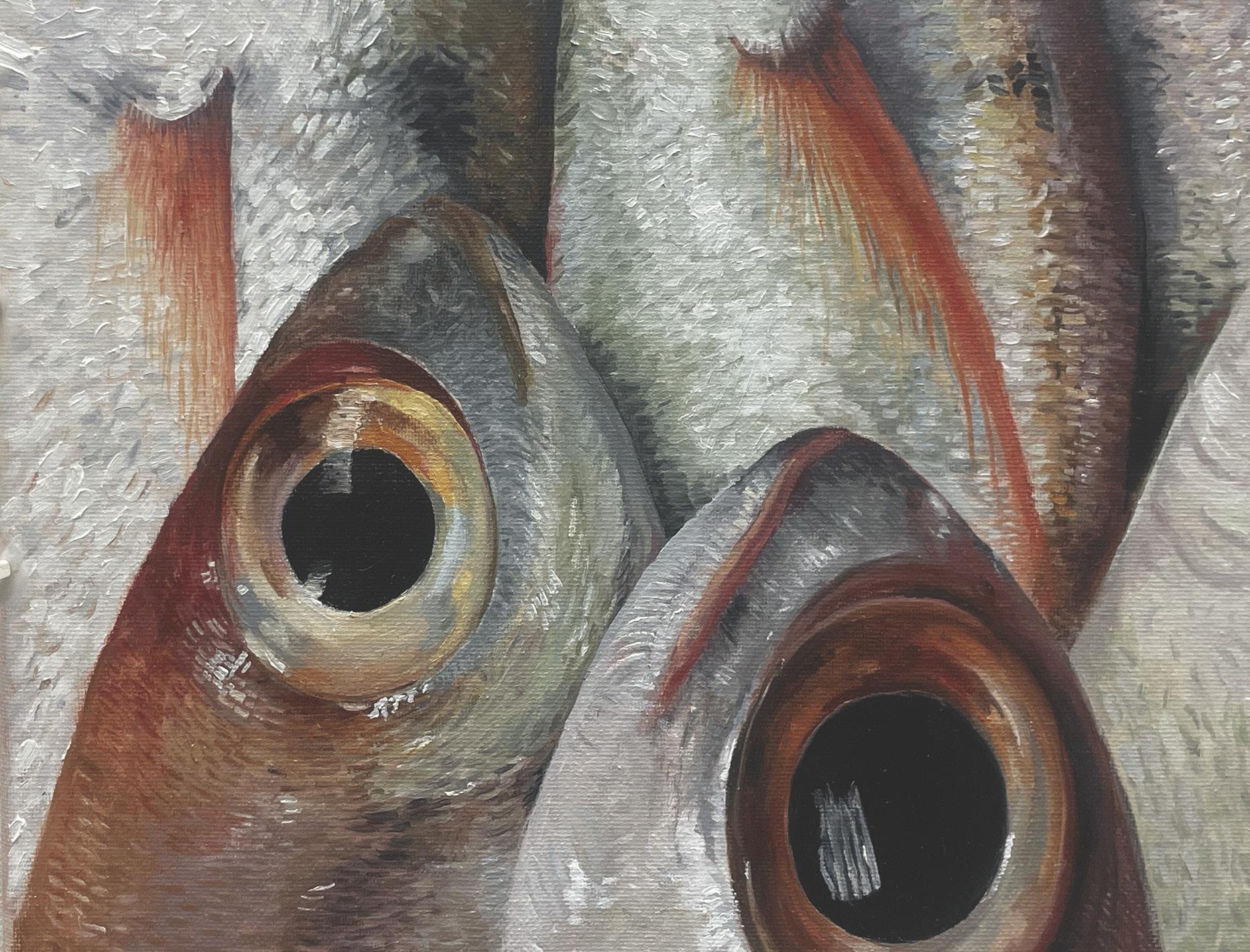

by Noah Rabil
It’s October 31st, 2012. Fall is here, her cold autumn breath now noticeable on even the sunniest afernoons. Orange leaves usher in orange pumpkins, skeletons stand with strewn-about fake cobwebs in neighbors’ yards. Te mystique of Halloween is in full blast, with purple and yellow, orange and green lining the halls and covering our countertops.
Te night is magical, the fnale to a month of anticipation. Ghouls, zombies, power rangers, and puppies run wild laughing at each other’s mischief. Doors swing open, revealing Frankenstein and his wife, just as eager to give out candy as the kids receiving it.
For a few hours, we are allowed to stay up later. Te lights are a little more colorful, the dark driveways a little more ominous, and the moon a whole lot brighter. At the night’s end, my candy accounted for and my costume tucked away, I fnish my ritual by watching “It’s the Great Pumpkin, Charlie Brown”.
Another successful Halloween. I wonder what I’ll wear next year?
When you’re a kid, it doesn’t occur to you that
eventually there won’t be a next year. Tere will be a fnal time you adorn a costume and run with your friends, kicking up leaves and trading Milk Duds for a box of Nerds.
As I sit here now, 18 years old and a senior in high school, watching the leaves fall from my dorm window, I grow a little sad. I miss those autumn days. I miss standing on my tippy toes to watch the swaying ghost ship in my grandparents’ house. I miss rifing through a bucket of candy on someone’s porch looking for Twix.
Of course, fall is still here. I still enjoy the leaves, and whenever I’m home in autumn I’ll enjoy how much efort my mom puts into decorating the house. I’ll always love you, Mom, and I’ll always adore the way you can make me feel like a kid again.
But like most things, those visits are dwindling in number too, inching ever so slowly to a fnal time.
Te ticking sound of life’s clock has grown insuferably loud, but when “ Te Great Pumpkin Waltz” brings me to tears in the shower, it reminds me to fully appreciate the season again.
Halloween makes me think of my sister May, who I wish could understand how precious these moments are. In a twisted way, by the time she realizes this, it’ll be too late; yeesh, time can be so ugly like that.
Anyway, thanks for those nights. Tey were spectacular. As Halloween creeps up on my calendar, I welcome him in with somber and open arms. Soon, he will leave. Goodbye, my Halloween.
